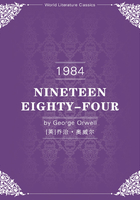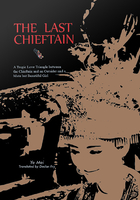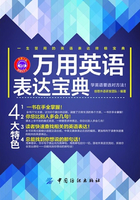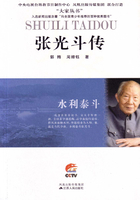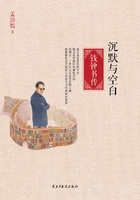Looking back, the original intention of that meeting was never to rush into sweeping reforms just as ten years of internal strife were coming to an end, but to begin small-scale adjustments. As Hua Guofeng, who chaired the meeting, remembered:"It was decided to take three years to adjust the national economy: fundamentally reforming the areas that we identified as being least conducive to development whilst also conducting wider reform of the overall economic system and continuing to reorganise existing enterprises. This, it was hoped, would raise the capabilities of our economy."
Xi knew that whilst Deng Xiaoping had not chaired the meeting, he was universally recognised as the real power, and so asked to meet him at Marshal Ye's instruction. During a number of different debates, taking advantage of every break between meetings, the eternally calm Deng listened to Xi's ideas about Guangdong "leading the way and developing rapidly". He congratulated Xi's boldness and innovative thinking:"Good ideas . . . China's Reform and Opening Up should start along the southwestern coast. Along the southwest coast, it should start in Guangdong and Fujian. In Guangdong, there'll need to be a beachhead, a test area. Get started on that, and if it does fail don't worry, the effects on a small area won't be catastrophic." During these discussions, Deng also said something that deserves to be recorded in the history books:"During the Revolution, the Shaanxi-Ningxia-Gansu border area was called a 'special zone,' right? Weren't you acting secretary of the committee there for a while? Well then, why not call the Guang-dong test site a 'special zone'?" What he said next set Xi's blood pumping:"The centre has no money; you'll have to find your own way to cut a bloody path out!" (Taken from Yi Yongqin and Yang Zhenghui, Great Changes, p79)
After Xi and Deng had this discussion, there was another inci-dent during the meeting worth noting: as first secretary of the central secretariat and vice-premier of the State Council Gu Mu reported the events of the day to Comrade Xiaoping, he mentioned that:"Guangdong has made a request that it be allowed to lead the way in the process of Reform and Opening Up by taking special measures in Shenzhen, Zhuhai, Shantou and so on. But what should we call these zones? We've heard 'trade co-operation zone,' 'export-industrial zone' and so on, but none of those names have really encapsulated their purpose." Deng gave his support to the creation of these zones, and as for the name, said:"Let's call them 'special zones,' just like we did that border area in the Northwest!"
That evening, Gu Mu took a walk around the southeast of Zhongnanhai[5] after dinner and happened upon Comrade Xiaoping. Deng said to him:"Gu, did you understand my point this morning, that the new areas in Guangdong should be called 'special zones'?"
Gu answered:"Yes, I did."
Every history book is agreed on the subject: the name "special zones" which set the wheels of China's development in motion was created and instituted by the Great Architect himself, Deng Xiaoping. It was his "bloody path" conversation with Xi which broke the ice and gave him the green light. That night, Gu told Xi that he'd again discussed the matter of "special zones" with Deng. The next day, full of misgivings, Xi went to find Gu and asked him:"So, will Guangdong get to run these special zones? Or will they be administered by the centre?"
Gu smiled and said:"Oh no, Guangdong will get to run them."In several later meetings, he applauded "Comrade Xi's" choice of name, and when addressing Guangdong's leaders said to them that they had to "revitalise the economy subject only to your own supervision, with the spirit of Sun Wukong[6] . . . It's all up to you. Certain central departments are too inflexible for this policy to be handled well there, which we will work to change, but in the immediate term you need to think outside the box."
Xi wasted no time. All of China had heard the economic system, planned to the point of ossification, shake from its very founda-tions.The ice had been broken and he was going full steam ahead. His vision had forced discussion of present conditions in Guang-dong and Fujian to take a back seat to the future of opening up to the world and reforming the economy. Deng Xiaoping, having experienced again and again the trials and tribulations of intra-Party factional struggle, predicted that once the special zones were established the results would soon speak for themselves and act as the catalysts for further reforms. He reminded Xi:"Everyone in the Party, everyone in the country, has different opinions on this matter. That's to be expected. Let them voice their views, and it'll prove a boon to the special zones' operation."
Meanwhile, the committee members back in Guangdong were waiting with baited breath for news from Beijing. On the 21st, vice secretary General Zhang Hanqing, who'd gone to the meeting with Xi, sent a telegram back reporting:"They want us to lead the way, and set up special zones on an experimental basis. Find areas that will attract investment from Hong Kong, Macau and overseas Chinese, such as Shenzhen, Zhuhai and Shantou in Guangdong, Xiamen in Fujian and Chongming Island in Shanghai. Foreign investors can build factories there without intermediaries, and locals can set up joint enterprises with them too." He also revealed an important piece of news: Comrade Gu Mu was going to lead a work team to Guangdong after the 1st of May to investigate how things had been carried out.
In April 1980, a work meeting of the Central Military Commis-sion decided to continue "foster proletarian ideology and eliminate bourgeois ideology" education amongst troop-level units.[7] Xi Zhongxun was head commissar of the Guangzhou military area at the time, and had misgivings about preserving this slogan. After giving it careful thought, he raised a criticism:"This slogan is unscientific. Popularising this slogan will lead people's thinking down incorrect paths. Abandoning it will make revolutionary work easier." He expressed Guangzhou area's objection to the slogan to the General Political Department, which responded with a clear reiteration:"Your cable of the 25th of June requesting clarifica-tion of the 'foster proletarian ideology' slogan has been received. Response follows: Director Wei Guoqing took the matter to Vice-Premier Deng (Xiaoping), whose opinion was that the slogan needed downplaying. The People's Daily and Guangming Daily may abandon it, but it will remain in Liberation Army Daily (the mili-tary newspaper). Care is to be taken that it is not overused."
As it was only the beginning of the Reform Era, people's ideology was not yet totally freed from the confi nes of class struggle ideology. As a result, the enduring popularity of the slogan meant there were limits to how quickly it could be discarded. After twenty years of sweeping change, with the passage of time and the opening of people's minds, the slogan finally fell into disuse. Xi was the first to question its use, exemplifying the brave new spirit of seeking truth from facts. By this time he had been working in Guangdong for some three years, and in order to oversee the construction of the special economic zones that would serve as the model for nation-wide Reform had often travelled down to Shenzhen to oversee the zone's construction. From these visits the people of Guangdong had gained a taste of this mature statesman who was leading them. He was decisive, flexible and principled, an important pioneer of the special economic zones and of Reform in Guangdong, earning an extremely high reputation amongst the common people.
A great catastrophe occurred in Guangdong's frontier defences, leaving Xi even more impatient to implement Deng Xiaoping's decision to create a special economic zone in Shenzhen. The 6th of May 1979 was a nightmare day for the Shenzhen border guard station; a crowd of almost 100,000 from all over the province converged there, throwing themselves at the border like fierce waves. The area outside the guardpost was a thronging sea of people, and there was nothing the guards could do; firing warning shots into the sky was no use, and several sentries were injured or killed as they got sucked up by the surging crowd.
No-one had any idea how to stop them; none of them had even received any intelligence warning them beforehand. It turned out that an extremely dangerous rumour had been spreading like wildfire throughout every city and county in the province. Ill-intentioned people had invented a terrible lie to give false hope to the suffering masses: on the anniversary of Queen Elizabeth's coronation, Hong Kong had announced an amnesty and anyone who wanted could apply for a permanent residence permit within the next three days, during which the border would be wide open at Shenzhen and anyone could walk freely into Hong Kong. And so, a crowd of thousands had descended on the area at almost the same instant, looking to cross the six-kilometre border. Eventually the "human sea" surged forward, a panicked crowd of people with all their worldly possessions on their back and tears in their eyes staggering towards the border, oblivious to the cadres and guards shouting at them to turn back.
The next day, the 7th of May, hundreds of corpses floated along the twenty-kilometre coast. The border crossing, so recently full of noise, had fallen deathly silent, like a field that had recently been swept by flooding; utterly lifeless, not so much as a bird's song to be heard. In their award-winning book Cold Blood, Warm Heart, the authors Lin Yuchun and Guo Hongyi described an incident from Nanling village in Bao'an:
Nanling's Party secretary, Zhang Weiji, drove his tractor at top speed to the Shenzhen-Hong Kong border. Stopping on the highway, he shouted as loudly as he could into the dense mass:"Anyone from Nanling village, come back with me!"
Amongst the crowd was Zhang's own wife.
But the crowd responded:"Even after we die, we don't even want our ashes to blow back onto this side!" That night, before Zhang's tear-filled eyes, more than four hundred people from Nanling Village fled across to Hong Kong.
According to Shenzhen's own local records, although Bao'an County secretary Fang Bao released several directives announcing "It is absolutely forbidden to cross the border" and sent more than a thousand police and soldiers to patrol the waterfront day and night, huge numbers of people trying to cross were stopped along the Guangzhou-Shenzhen highway. In less than two years, over 1,200 people had taken boats or swum across to Hong Kong from Wanfeng Village, which at the time was over 50% of the village's labour force. The loss of labour meant som 90,000 mu of agri-cultural land had gone to waste. In August, the rice rotted in the fields with no-one to harvest it, and it was diffcult to find anyone between the ages of fifteen and thirty-five for miles around.
The situation was even worse than when the crowd of thou-sands tried to force their way into the Guangzhou Railway Station back when Chen Yu was provincial secretary and Zeng Sheng was mayor of Guangzhou. From January to May 1979, the surge of people fleeing to Hong Kong peaked at an offcially estimated 119,000 people, more than in the entirety of 1962, the worst year on record. Some estimates put that figure even higher, claiming as many as 300,000 people may have fled during that period alone.
Once word of the incident reached Xi Zhongxun he headed straight for Shenzhen. The situation had essentially returned to normal by this point, but there was still the odd straggler trying to come across late. Xi immediately called all the local commune heads together for a discussion, and asked them bluntly whether or not they were able to keep people in. They all responded that the coast was so long and the discrepancy between life on the mainland and in nearby Hong Kong so large that it was like trying to hold sand in a sieve. Xi knew this all too well: Wu Nansheng had done research on the matter, and whilst a day's labour in Shenzhen or Bao'an would earn a man 0.7 yuan, in Hong Kong even an unskilled peasant could earn 60 or 70 Hong Kong dollars in a day, almost a hundred times more! Whilst troops in several counties had estab-lished effective lines of defence, each county dealt with the matter in its own way, and it was easy to slip through the cracks.

